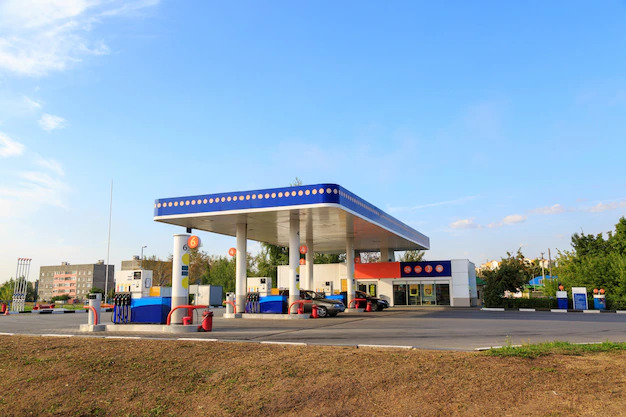What do you think is happening in this video? Do you know what this behavior on the road is called? This is a common phenomenon known as road rage.
What is Road Rage?
The term "road rage" appeared in the media for the first time during the 1980s. Road rage is defined as aggressive or violent behavior displayed by a driver in reaction to a perceived provocation or irritation while driving. It is a phrase used to describe excessive rage, animosity, or violence that can develop when driving in traffic or as a result of driving in traffic. Road rage may present itself in a variety of ways, including aggressive driving maneuvers, verbal confrontations, physical altercations, and even purposeful acts of violence with the goal to do harm to people on the road. Excessive honking, tailgating, screaming, vulgar gestures, or purposely blocking or hindering other cars are common examples. Road rage may endanger the safety and well-being of all involved, and it is often seen as dangerous and inappropriate behavior on the road.
Road rage was initially used to describe violent behavior displayed by motorcyclists. This was most likely owing to the belief that motorbike riders were more likely to engage in dangerous driving behaviors or to become targets of violence from other road users. However, the phrase has come to refer to aggressive driving behavior by drivers of various sorts of vehicles, including automobiles, lorries, and other motorized vehicles.
What Causes Road Rage?
Now, let us understand the correlation between rage and driving. Here, we will explore what are the possible causes that result in a driver seeing red on the road.
Environmental Factors
Environmental factors are major contributors to road rage. These are elements that are outside the control of the driver. Heavy Traffic is a primary cause of road rage, setting an impatient driver off from being stuck and the possible delays as a result. Bad driving behavior of other drivers such as tailgating, slow driving, overtaking from the wrong side, reckless lane changing, etc. can also push drivers to become aggressive and enraged. Seeing other drivers practicing distracted driving, for example, texting or calling on the phone, further boosts anger behind the wheel towards such irresponsible drivers.
Psychological Factors
Psychological Factors are those causes that are attributed to the driver with road rage problems. Certain personality traits make a person more vulnerable to road rage. When the driver is naturally aggressive or impatient, the smallest inconveniences on the road sets them off. They are more prone to behave erratically on the road believing they are right and their appointments matter more than others. Anger or stress in life can also be displaced and manifested in the form of this aggressive road behavior. Road rage may be further inflamed by the perceived anonymity that the traffic offers. Drivers may feel more comfortable expressing their anger because they are not personally associated with the other road users and are unlikely to encounter them again.
What are the consequences of Road Rage?
Road rage may have devastating effects on both the persons involved and innocent road users. As aggressive driving behaviors increase the chance of road accidents, it can lead to crashes, injuries, and even fatalities. Physical altercations or acts of violence caused by road rage can cause serious injury to those involved and may result in legal penalties. Road rage events also lead to a deterioration in overall road safety by establishing a hostile environment and raising the possibility of violent behavior among drivers. Furthermore, the emotional toll of road rage can have a severe influence on mental well-being, increase stress, and impair decision-making ability when driving. Overall, the repercussions of road rage highlight the necessity of encouraging calm and polite driving behaviors on the road.
Tips to Manage Road Rage
- Leave before time so that you have enough time to reach your destination. Factor in possible delays due to traffic congestion.
- Avoid driving when you are feeling extreme emotions such as anger, stress, or frustration. If you had a bad day at work or are going through something personal, put off non-essential driving.
- Empathize with other road users. Nobody is perfect, so it is natural for other drivers to make mistakes.
- If you are prone to fits of road rage, have a personal strategy or method to calm down without engaging yourself.
- Don’t use your horn excessively. Only use when necessary.
- Ignore other drivers if they are being rude and trying to instigate you
- Get a sufficient amount of sleep as lack of sleep may lead to irritability and a lapse in decision making
What if You are a Victim of Road Rage?
If you become a victim of someone else's road rage, it is critical that you prioritize your safety and defuse the situation. Maintain your cool and avoid dealing with a hostile person. If you have committed a mistake, a genuine apology might assist to alleviate tension. Under no circumstances, however, should you reply with violence or verbal abuse. Instead, attempt to ignore the other person's rude or aggressive behavior.
If the situation worsens and you feel threatened, drive to the nearest police station or a public space with people nearby. Remember that being calm and getting help when needed are crucial to avoiding potential injury during road rage incidents.
Read More
Potholes, Construction Zones and Beyond: Identifying and Managing Road Safety Hazards
Driving in the Dark - Tips for Safe and Confident Night Driving
A Step-by-Step Guide to CAPA and Streamlining the Process with ATS



.png)

